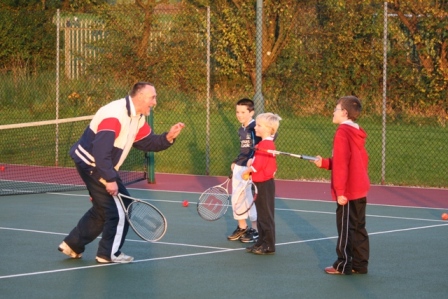Andy Grant: advising coaches
Sports coaching qualifications in the UK: an evolving landscape
Billed as one of the most significant changes in sport since coaching ‘badges’ were invented, the move to bite-sized learning offered by the new Qualifications and Credit Framework will revolutionise coaching qualifications. Andy Grant explains the hows and whys.
Andy Grant: advising coaches
Education, education, education is an oft-repeated mantra and one that applies very much to sport. The development of coach education has been key to improving coaching standards, manifesting itself in the form of the UK Coaching Certificate (UKCC). Time stands still for no man, however, and the new decade will see further developments in sports coaching qualifications as they move into line with the wider education agenda, namely the switch from the National Qualifications Framework (NQF) to the new Qualifications and Credit Framework (QCF). The UK Coaching Certificate (UKCC) was identified as a concept by the Coaching Task Force in 2002 and was rolled out in 2006 following the pilot programme. It is considered to be one of the biggest changes in sports coaching qualifications since they were first introduced.
The UKCC model is built around a four-tier framework for coaching qualifications that is standard across all sports in the UK. The rationale behind the UKCC is not to have all coaching qualifications exactly the same but to create a level of consistency across sports in terms of course content and standard. Put another way, the UKCC is a mark of quality-assurance for not just the coaching content of the programme but also the quality of the supporting learning resources, commitment to the individual coach’s learning, and the skills and experience of the coach-education workforce. UKCC endorsement of a governing body of sport’s coaching qualification is a rubber stamp of the quality of that qualification.
The switch from the NQF to the new QCF will have an impact on the whole of post-compulsory education and sport needs to move with these developments. SkillsActive, the sector skills council for the wider sport, leisure and recreation industry, is the appointed lead agency for seeing the successful implementation of the QCF within the sport sector. They have worked closely with Sportscoach UK, the national lead agency for sports coaching, to ensure that the needs of sports and their coaches have been identified and that they influence the future direction of education within sport. While the logistics of the transition from NQF to QCF are unlikely to have an impact on coaches, what the new framework will introduce may have a significant bearing on their long-term development.
For the coach the QCF will mean coaching qualifications will be more inclusive, accessible and flexible through a unit-based approach to the structure of qualifications. The units are the building blocks of the QCF and will enable ‘bite-sized learning’, which for the coach may mean being able to attend different education providers – over a longer timeframe if required – to complete units that will make up the overall coaching qualification. The units will see qualifications divided into three categories: award, certificate and diploma. The categories are based on the amount of recommended time that it will take the coach to complete the qualification. The award is given for the shortest time and the diploma for the longest time. For the coach this means that their current coaching qualifications may be renamed to have the term ‘award’, ‘certificate’ or ‘diploma’ inserted.
The categories will work as follows. Every unit will be given a credit value and these credit value specify the number of credits awarded to a learner who achieves all learning outcomes of the unit. One credit equates to 10 hours of learning time so 40 hours of learning will equal four credits. Learning time includes assessment and self-study as well as direct contact with course tutors. The credits are only awarded when a whole unit is achieved and the number of credits achieved determines size of the qualification and therefore the title of QCF qualifications. To get an award you will need between one and 12 credits, the certificate will require between 13 and 36 credits, and the diploma will require in excess of 37 credits.
This new unit-based structure for coaching qualifications may open up new opportunities for coaches in terms of their personal development. Governing bodies of sport, Sportscoach UK and awarding bodies such as 1st4sport Qualifications are looking at the potential for creating pathways within the coach-education system that will allow coaches to be recognised as specialists within niche areas. Coaches may be able to add to an existing certificate by attending additional specialist units to gain the extra credits to achieve a diploma within their chosen specialism. One key shift is the broad interpretation of what may be a learning experience. The QCF acknowledges that coaches can learn from simply coaching.
As we move into 2010 the wider education agenda and the political drive for increased sporting participation and international success will see coach education remaining a high priority. The continued development of sports coaching qualifications will have a major role to play in producing higher standards of coaching, ultimately resulting in improved participation rates and success at major international competitions. The coach education landscape continues to evolve and it is hoped there will be a positive impact on the opportunities available to the coach, from flexible approaches to gaining your next qualification to becoming a recognised coaching specialist.
Andy Grant is a coach education adviser at Sportscoach UK
The Leisure Review, February 2010
© Copyright of all material on this site is retained by The Leisure Review or the individual contributors where stated. Contact The Leisure Review for details.
Download a pdf version of this article for printing
